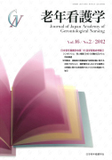Japanese
English
- 販売していません
- Abstract 文献概要
- 参考文献 Reference
抄録
本研究の目的は,介護老人福祉施設に入所している高齢者の胃瘻造設における家族の代理意思決定プロセスを明らかにすることである.対象者は,施設入所高齢者の家族で,代理意思決定を主に行った家族18人であった.家族が高齢者の胃瘻造設の代理意思決定を行うまでの過程について半構成的面接を実施し,修正版グラウンデッド・セオリー・アプローチで分析した.
その結果,18の概念,4のサブカテゴリー,6のカテゴリーが生成された.介護老人福祉施設に入所している高齢者の胃瘻造設における家族の代理意思決定プロセスは,高齢者の【食べることへの危機を実感】する体験から,【自分に内在する思いとの対話】を通して,高齢者の胃瘻造設の決定にかかわる者としての【代理の責任を背負う精一杯の自己決定】へとつなげていることが明らかとなった.そして,代理意思決定を行う重責に対して【決定への荷おろし】ができること,【決定への後押しを求める】ことで重責感を緩和することができ,さらに決定への意思を固め,【命をつなぐ選択としての意思が据わる】として決定に至るという,6段階で構成されていることが明らかになった.
以上のことから,代理意思決定者となる家族の内在する思いとの対話を深めること,家族の代理の責任を支持する支援の重要性が示唆された.
The purpose of our study was to clarify a family's decision-making process for conducting a gastrostomy for an elderly patient in a nursing care home for the aged. Our subjects were 18 families of elderly patients in nursing care facilities, faced with the decision as proxies whether or not to perform a gastrostomy for the patients. Semi-structured interviews were done with all subjects for information on the subjects' decision-making process up to the time of and after their choice to proceed with the gastrostomy for the aged family member. The results were analyzed using the modified grounded theory approach method. The results consisted of 18 concepts, 4 sub-categories, and 6 categories. We noted that the decision-making process of the subjects in choosing gastrostomy was comprised of 6 stages: (1) trying “their upmost to be a responsible proxy” as a relative of the elderly patient, through the (2) “resolution of their inner conflict” which arises from a (3) “feeling of fear of the consequences of the patient's inability to eat”. The family could then (4) “sense relief from the heavy feeling of responsibility” to allow them make the decision as proxy, further eased by (5) “receiving support for the decision”, and finally acknowledge (6) their “desire to keep the elderly relative alive”. Our analyses suggest the importance of a nurse's role in helping reduce the emotional conflicts faced by families who make decisions as proxies of elderly patients who have difficulty in eating, and the importance of supporting these families' responsibility.
Copyright © 2012, Japan Academy of Gerontological Nursing All rights reserved.


